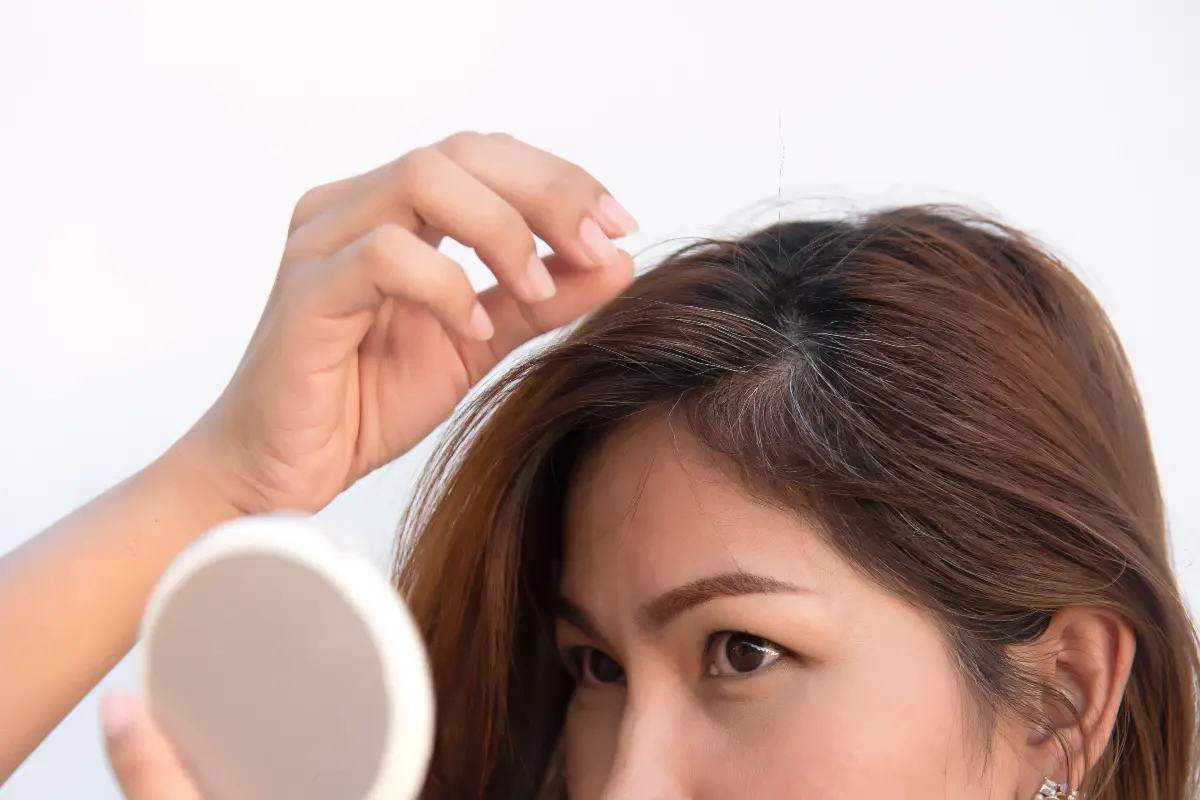Throughout history, folklore has been peppered with anecdotes linking the greying of hair to periods of intense stress and turmoil. For centuries, dramatic events were said to have caused individuals to go grey overnight. But is there a shred of truth to these tales, or are they merely figments of our collective imagination? Let’s untangle the facts from fiction and uncover what science has to say about the mysterious connection between stress and the greying of hair.

The narrative of hair suddenly turning silver has always been intriguing, stirring a mix of fear and fascination. It's a concept that has been perpetuated in literature and legend alike. However, the physiology behind hair colour reveals that the process is not as instantaneous as these stories suggest. Human hair derives its colour from melanin, a pigment produced by cells known as melanocytes. As we age, melanocytes gradually lose their ability to produce melanin, leading to the greying of hair.
Yet, it's not just the ticking clock of ageing that influences the spectrum of shades atop our heads. Researchers have been investigating whether there is a biological mechanism through which stress can accelerate the greying process. For instance, a study conducted by researchers at Harvard University discovered that stress can indeed cause hair to grey faster. The crux of this phenomenon lies with how our body’s ‘fight or flight’ response—a chain reaction triggered by perceived threats or stress—affects melanocytes.
When under stress, the body’s sympathetic nervous system goes on high alert, causing a release of noradrenaline into the bloodstream. This hormone prepares the body to confront or escape the stressor. Fascinatingly, this reaction was found to deplete the reservoir of pigment-producing cells in hair follicles in mice. As a result of this depletion, new hair grows without pigment, thus appearing grey or white.
Moreover, the study indicated that the process might not be entirely irreversible. Once stress is removed, it could be possible for pigment production to resume, assuming the hair follicle stem cells haven't been completely depleted. This discovery holds a glimmer of hope for those dreading their stress-induced silver strands.
Another aspect of how stress might cause greying is through inflammation. Chronic stress leads to increased and prolonged inflammation in the body. This environment can create biochemical changes that might impact the health of hair follicles and inadvertently affect pigmentation.
What’s more, the presence of stress hormones may also expedite cell ageing. Telomeres, protective caps at the ends of chromosomes, become shorter with age, and stress can accelerate this process. Since melanocyte stem cells are also subject to the ageing process, heightened stress might fast-track their decline, contributing to the premature greying of hair.
While the research is expanding our understanding, it is important to remember that other factors contribute to why and when people go grey. Genetics plays a pivotal role; your genetic makeup determines how early or late in life you start to notice those silver strands. Nutritional factors, hormonal imbalances, and certain medical conditions and medications can also influence the colour of your hair.
However, correlating the anecdotal evidence with scientific findings paints a compelling picture. Identifying the stress-greying link has moved us beyond mere speculation. This connection has ushered in a new era of haircare, where stress management could be as crucial to maintaining natural hair colour as are shampoos and dyes.
In conclusion, while the idea of going grey overnight remains a myth, the effect of stress on hair colour is no old wives’ tale. It's clear from the burgeoning body of research that there is indeed a complex interplay between stress and the greying process. While stress may not be the sole culprit in the hair greying caper, it undoubtedly plays a role worthy of recognition.
By prioritising stress reduction techniques such as mindfulness, exercise, and proper nutrition, we might just be able to keep those greys at bay a bit longer. Understanding the science behind this intricate relationship not only solves one of beauty’s biggest mysteries but also serves as a reminder of the undeniable connection between our emotional well-being and physical appearance.
